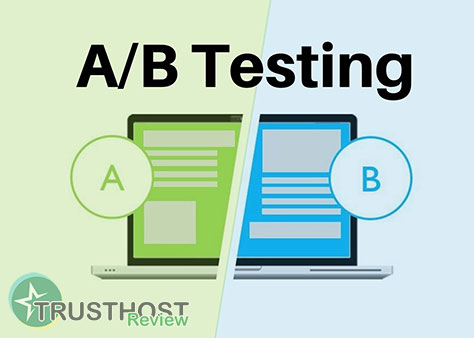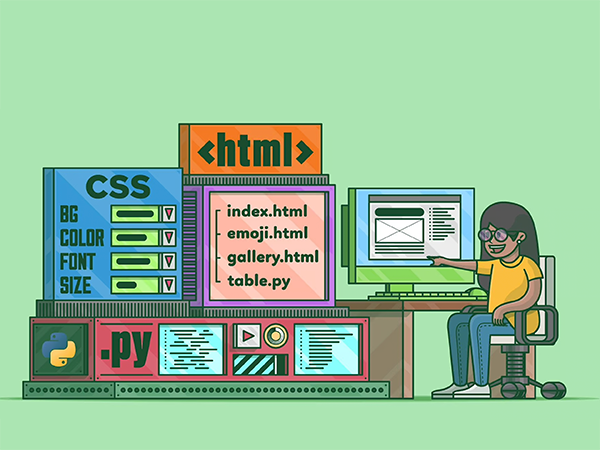The Truth About 'Unlimited' Hosting Plans (It's Not What You Think)
That 'unlimited' hosting plan seems like the deal of a lifetime, doesn't it? Unlimited storage, unlimited bandwidth, all for just a few dollars a month. It feels like you've found a secret key to running a powerful website on a shoestring budget. But the truth is, in the world of web hosting, 'unlimited' is a marketing term, not a technical reality. Understanding the hidden limitations behind these offers is crucial for protecting your website's performance, uptime, and your business's reputation.
This article pulls back the curtain on 'unlimited' hosting. We'll expose the fine print, explain the real-world resource caps that can get your site suspended, and show you what to look for to find genuinely fast website hosting that can support your growth.
The 'Unlimited' Illusion: What Your Host Isn't Telling You
When a hosting company offers 'unlimited' resources, they aren't claiming to have access to infinite server space. Physics and technology still apply. Instead, they are operating on a model of averages.
They know that the vast majority of websites on their shared servers will use a tiny fraction of the available resources. Your small personal blog and a dozen others like it can comfortably coexist on a single server because your combined usage is low.

The 'unlimited' promise is a bet that you'll stay within this 'normal' usage pattern. The problem arises when your website starts to succeed. A viral blog post, a successful marketing campaign, or a growing e-commerce store can push your resource usage beyond this invisible line. And that's when you'll be introduced to the real rulebook: the Fair Use Policy (FUP) or Acceptable Use Policy (AUP).
Buried deep in the terms of service, this policy is the host's safety valve. It outlines the actual, tangible limits on your 'unlimited' plan. If you exceed them, you risk a friendly warning, forced upgrades, or worse, an immediate website suspension.
The Real Limits: Unpacking the Fine Print
So, what are these hidden limits that can trip you up? While they vary by provider, the most common restrictions on 'unlimited' plans are not about gigabytes of storage, but about processing power and server strain.
- Inode Count: This is the most common 'gotcha'. An inode is a data structure that stores information about a file or folder on the server. Every single file—an image, a script, an email, a cache file—consumes one inode. 'Unlimited' storage plans often have a hard cap on inodes, typically between 100,000 and 300,000. A moderately complex WordPress site with a theme, plugins, and a few dozen blog posts with images can easily use 50,000+ inodes. A photography portfolio or a site with thousands of products could hit the limit in months, even if the actual disk space used is small.
- CPU Usage: Your 'unlimited' plan entitles you to a small slice of the server's Central Processing Unit (CPU). If your website's scripts (like plugins or a poorly optimized theme) demand too much processing power, you'll be throttled or suspended. This is often measured in 'CPU seconds' or a percentage of a core, and the limits are surprisingly low.
- RAM / Memory Usage: Similar to CPU, your site has a strict limit on how much physical memory it can use. Running too many simultaneous processes—like multiple visitors triggering complex database queries—can max out your RAM allocation and cause your site to crash or display a '503 Service Unavailable' error.
- Entry Processes (EP): This refers to the number of simultaneous connections your hosting account can handle. If you have a traffic spike and 25 people try to load your site at once, but your EP limit is 20, the last five visitors will get an error. This directly impacts your site speed and user experience during peak times.
- File Type and Usage Restrictions: The FUP will almost always state that the hosting space cannot be used for file archiving, backups, or as a personal cloud drive. They are selling you hosting for a live website, not a Dropbox alternative. Storing large .zip files or video archives is a quick way to get a warning from your provider.
Case Study: The Photographer's Nightmare
Imagine Sarah, a photographer who just launched her online portfolio. She chose an affordable hosting plan that advertised 'unlimited storage'—perfect for her high-resolution images. For six months, everything was fine. She uploaded hundreds of photos from various shoots. Then, ahead of a major art fair, she launched a promotion. Traffic surged, and suddenly, her website went offline. Panicked, she contacted support, only to be told she had exceeded her plan's 250,000 inode limit. Each photo, thumbnail, and cache file had pushed her over the edge. Her 'unlimited' plan was anything but, and it failed her at the worst possible moment.
Beyond 'Unlimited': How to Choose the Best Hosting for Small Business
If 'unlimited' is a myth, what's the alternative? The answer is transparency. The best hosting for small business isn't about vague promises; it's about clear, defined resources that you can monitor and scale as you grow.

Not all shared hosting is built the same. Look for providers who are upfront about their resource limits. A host that tells you your plan includes 1 CPU Core, 1GB RAM, and a 300,000 inode limit is far more trustworthy than one that just says 'unlimited'. This allows you to make an informed decision and know when it's time to upgrade.
2. Cloud & VPS Hosting
For businesses that are gaining traction, a Virtual Private Server (VPS) or Cloud Hosting plan is the logical next step. With a VPS, you get a dedicated portion of a server's resources that are guaranteed for you. There's no 'fair use' policy because you're paying for a specific amount of CPU, RAM, and SSD storage.
Comparison:
- 'Unlimited' Shared Hosting: Low cost, but unpredictable performance. Your site's speed can be affected by other websites on the same server. Good for beginners, but risky for businesses.
- VPS Hosting (e.g., DigitalOcean, Vultr, Linode): Higher cost, but you get guaranteed, scalable resources. Your site's performance is isolated and consistent. This is the sweet spot for growing businesses that need reliable power and control.
3. Managed WordPress Hosting
If you want the ultimate in performance and peace of mind, Managed WordPress Hosting is the gold standard. Companies like Kinsta, WP Engine, and Flywheel don't play the 'unlimited' game. Instead, their pricing is based on tangible metrics like the number of monthly visits and actual disk space. They provide a finely tuned environment specifically for WordPress, with built-in caching, security, and expert support. This is often the best, albeit most expensive, path to achieving incredible site speed and reliability.
Your Hosting Checklist: What to Ask Before You Buy
When evaluating your next host, ignore the 'unlimited' hype and focus on these critical metrics:
- ✅ Storage Type: Insist on SSD or, even better, NVMe drives. They are exponentially faster than old HDD drives.
- ✅ Defined Resources: Ask for the specific CPU, RAM, and Inode limits for your plan. If they can't tell you, walk away.
- ✅ Scalability: How easy is it to upgrade your plan? Can you add more RAM or CPU without a lengthy migration?
- ✅ Server Location: Choose a host with data centers close to your primary audience to reduce latency.
- ✅ Backup Policy: How often are backups taken? How long are they retained? How easy is it to restore one?
- ✅ Support: Is support available 24/7? Are they first-level agents reading from a script, or are they technical experts who can actually solve problems?
Choosing a web host is a foundational decision for your online business. Don't let flashy marketing terms dictate your infrastructure. By prioritizing transparent, defined resources over the myth of 'unlimited', you invest in a stable, scalable, and fast website hosting solution that can actually support your success.
What's Your Experience?
Have you ever been burned by a 'fair use' policy? Share your hosting stories or questions in the comments below! Save this post for your next hosting renewal, and let's help each other build better, faster websites.















